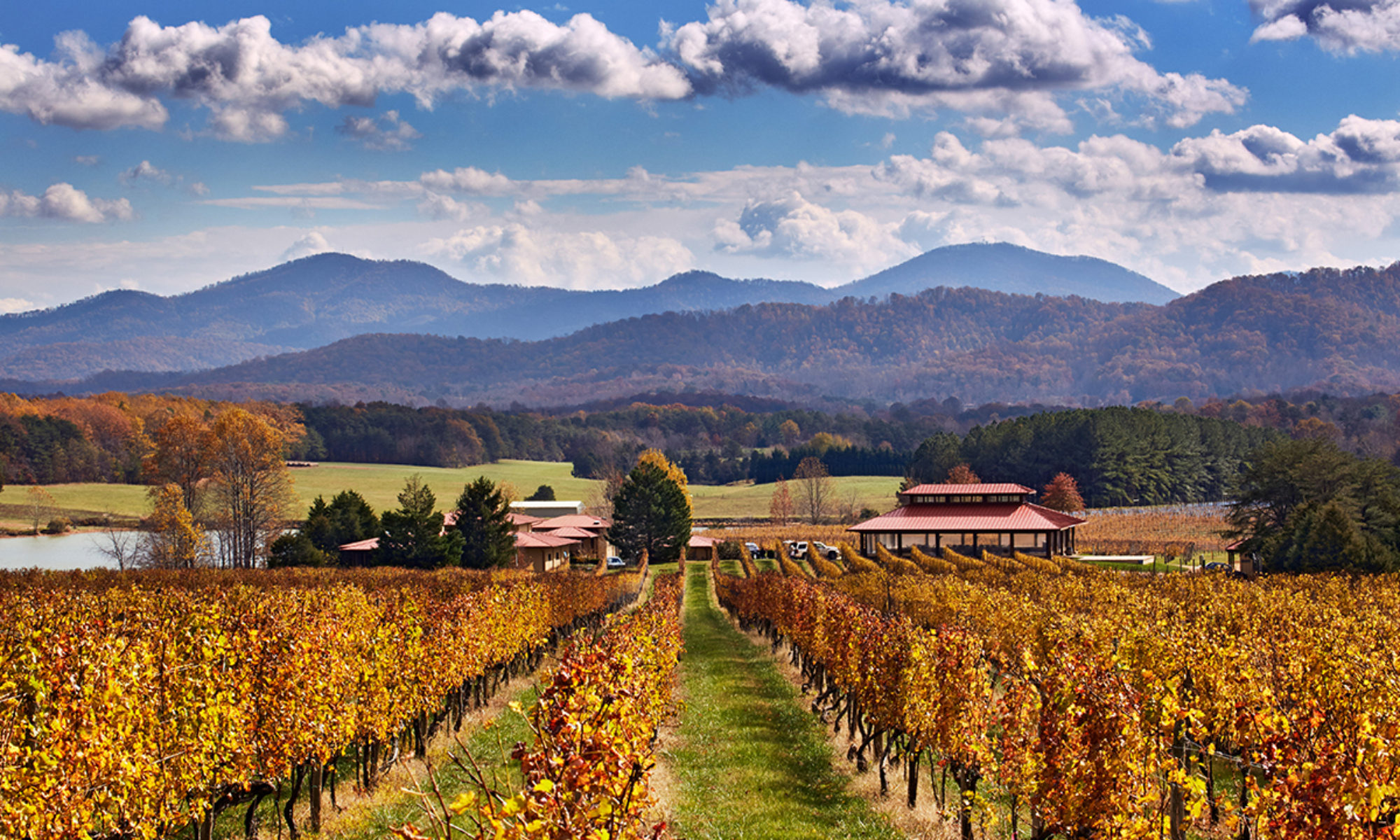Valerie Hill Winery
In Stephens City, just south of Winchester in the Shenandoah Valley. The winemaker is Justin Bogaty, from the Bogati Family who have three wineries in the area. Valerie Hill was opened in 2012, and is currently serving wines from elsewhere in Virginia until its own vines are ready. The farm has 18 acres, and the Federal style brick Manor House, built by Revolutionary War Captain Peter Rust, dates to 1807.
Wine. Tier II. Valerie Hill wines won five medals at the 2017 Virginia Governors’ Cup state-wide wine competition: silver medals for their Antebellum (a Chardonnay and Viognier blend) and Cameo (an off-dry rosé), and bronze medals for their Vidal Blanc, Chardonnay and Merlot. There are other varietals, and the Stone Chimney Red Bordeaux-style blend.
Setting. Relaxing and attractive indoors, where a 19th century manor house is the setting for Valerie Hill’s tasting room (s). Adirondack chairs on the lawn outdoors overlooking the vines – when these mature in the next couple of years the view will be increasingly beautiful. Cheese and cold cuts are available. For something different, look for one of the periodic “ghost dinners,” leveraging the 200-year history of the Manor House.
Stories. Two stars. Virginia’s Largest Empire. Very few people know that little White Post, in sparsely inhabited Clarke County, was once the seat of what can only called “Virginia’s Largest Empire.” In the 18th Century, Greenway Court was the seat of what can only be called an Empire – the vast landed estates owned by Thomas Fairfax, 6th Lord Cameron of Fairfax. Lord Fairfax, and a Lord he certainly was, was unique in a great many ways. Born in 1693 at Leeds Castle in Kent, son of the 5th Lord of Fairfax and his wife, daughter of the second Baron Colpeper, Thomas Fairfax did something no other English noble ever did – he decided to live in Britain’s North American colonies. Through his mother, he came into possession of the enormous Northern Neck Land Grant, dating back to 1649 and covering over 5 million acres. He first visited his Empire in 1735, and settled permanently in Virginia in 1747. Five years later, Fairfax, a lifelong bachelor, decided to live at his hunting lodge in the Shenandoah Valley – Greenway Court. He died in 1781, months after the end of the Revolutionary War, which resulted in the confiscation of his Empire. Virginia will never know another like it! Today the property in White Post consists of 5 acres, 0.0001% of Fairfax’ 18th century domain. One of the few who have visited its remnants was the author Willa Cather, who wrote a short story called “A Night at Greenway Court.”
Wine and Dino your friends. While few people know of White Post as a seat of Empire, many know of it as “the land where the dinosaurs roam.” Dinosaurland features some 50 dinosaur replicas, accompanied by King Kong, and an enormous gift shop. While the White Post dinosaurs may not be as anatomically convincing as the cloned stars of the “Jurassic Park” films, they are more geographically appropriate. Real live dinosaurs inhabited the land that became Virginia, many living near lakes such as the 60-mile long lake which was once in today’s Shenandoah Valley – while probably not too many lived in small islands off the Costa Rican coast.
